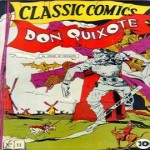Roman Polanski and the Rule of Law
I’ve been struck by the differing views in Europe and the United States regarding whether filmmaker Roman Polanski should be extradited. Polanski drugged and raped a thirteen-year-old girl in Los Angeles, and he then fled the United States in 1978, just before being sentenced. He lived openly in Paris and traveled and worked in Europe for 30 years before recently being arrested in Switzerland, where he remains in custody.
The sentiment among European politicians and artists seems to be that the extradition attempt is another example of uptight, moralistic Americans at work. Donald Tusk, the Polish Prime Minister, said Polanski was being victimized by vengeful Americans and their Swiss lackeys. The President of the German Film Academy was especially outraged because Polanski, an internationally acclaimed director, was arrested at a film festival. Franz Wagner, a German columnist, noted Polanski’s mother had died in Auschwitz and argued that Polanski should therefore be released “because he has suffered enough.” Perhaps the silliest comment came from French intellectual Bernard-Henri Levy. He thought Polanski, 43 at the time of the rape, should be forgiven for “a youthful error.”
Few of the European apologists or commentators have reflected how Polanski’s flight was an affront to the American justice system. Having pled guilty to rape, Polanski basically skipped bail and then continued to thumb his nose at the judge and courts for decades. This type of behavior is a more troubling matter for many Americans, given the central place a belief in the rule of law has in the dominant ideology. The rule of law is of course also held dear in Europe, but the Polanski affair makes clear Europeans are as likely to draw a sense of right and wrong from nationality, history, and a respect for art as they are to rely on a court of law.

 This blog has seen an extended discussion on the topic of literary characters and copyright law. It began with my post
This blog has seen an extended discussion on the topic of literary characters and copyright law. It began with my post  Most law school professors are conflicted about their own experiences as law students. We remember law school as an exceedingly unpleasant place, filled with crushing amounts of work and a hostile professoriate. It is not surprising that law school is often depicted as a de-humanizing experience in the media, whether in books like Scott Turow’s One L or in movies such as The Paper Chase. This recent
Most law school professors are conflicted about their own experiences as law students. We remember law school as an exceedingly unpleasant place, filled with crushing amounts of work and a hostile professoriate. It is not surprising that law school is often depicted as a de-humanizing experience in the media, whether in books like Scott Turow’s One L or in movies such as The Paper Chase. This recent